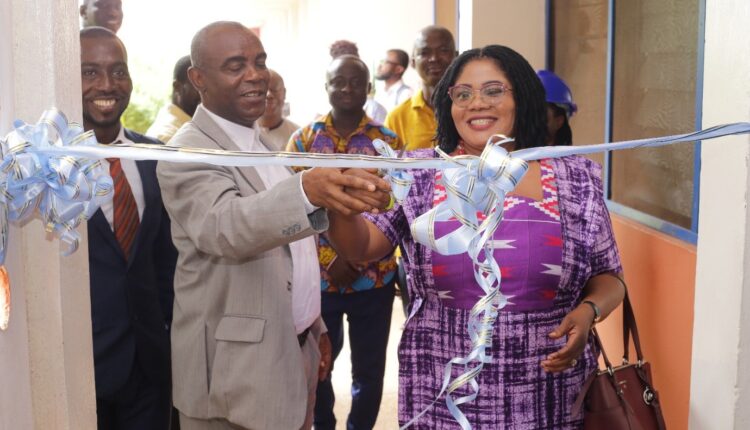Agnes Naa Momo Lartey, the Member of Parliament for the Krowor constituency, has emphasized the importance of improving economic conditions through the dynamic movement of human capital globally, which is essential for enhanced and sustainable socio-economic development.
She made this remark at a graduation ceremony for the fifth batch of forklift and mobile crane operators in Accra, themed “Socio-Economic Impact of Global Migration of Skilled Labor.”
“It is important that this training program, organized by the Regional Maritime University in collaboration with the National Association of Heavy-Duty Equipment Operators, addresses the pressing challenges faced by the nation’s unemployed youth,” she pointed out.
She added that such initiatives would help tackle the unemployment issues faced by many young Ghanaians who struggle to access quality education and subsequently find well-paying jobs.
In her view, while global migration of skilled labor is inevitable, countries can ensure that their local economies benefit from it with strategic support. She urged the government to implement policies that encourage the retention and development of skilled professionals within the West African sub-region.
Dr. Jethro W. Brooks Jr., the Acting Vice Chancellor of the Regional Maritime University (RMU), addressed the graduating class and highlighted the necessity for local businesses to create more employment and training opportunities. “A balanced approach to skilled labor migration is essential,” he explained, emphasizing that local industries must provide additional training and employment opportunities to maintain a robust and competitive workforce.
Dr. Brooks acknowledged the dual nature of skilled labor migration, noting that while it offers opportunities for individuals, it can also lead to “brain drain,” which creates gaps in local economies.
He encouraged the graduates, stating, “You have the power to build not only structures but also bridges between nations, creating socio-economic ties that will benefit future societies worldwide.”
He underscored the vital role of forklift and mobile crane operators in sectors such as construction and logistics, both locally and internationally.
“It’s essential that our graduates are competitive globally while also contributing meaningfully to the development of our sub-region,” he added, urging graduates to embody the values of integrity, dedication, and excellence instilled in them during their training.
Dominic Kofi Eyiah, the President of the National Association for Heavy Duty Equipment Operators (NAHEOG) and an instructor, commended the graduates and underscored the pivotal role of the training, which he described as world-class preparation for the globalized economy. “We are committed to equipping individuals with modern technologies and skills to ensure they remain relevant in the job market,” he stated.
In a related development, the university opened a new NAHEOG office to strengthen the relationship between students and lecturers and to provide a more conducive learning environment for the forklift, Mobile crane discipline.


Comments are closed.